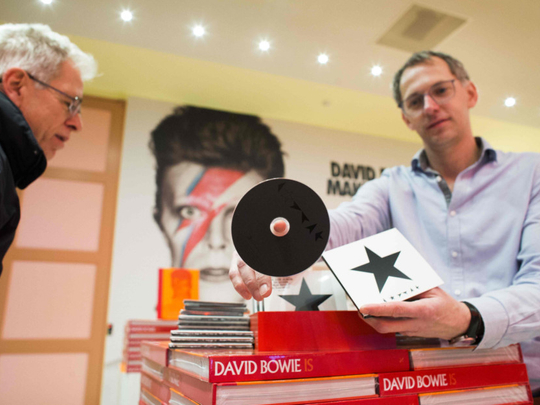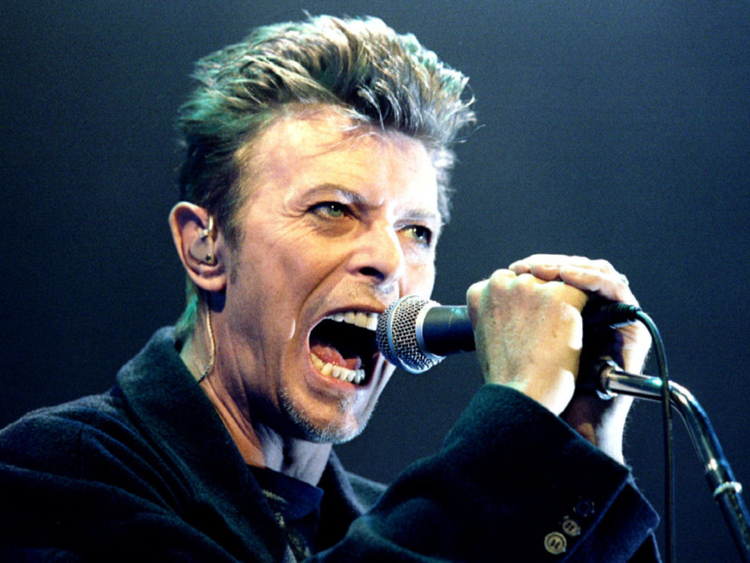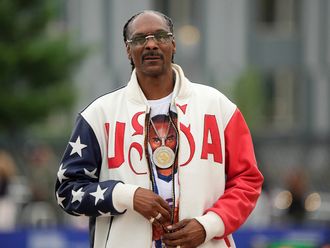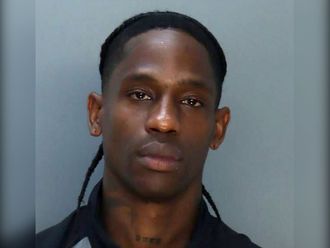
After a 10-year absence, David Bowie’s surprise return to music in 2013 was hailed as the most glorious comeback in pop history. A record-breaking Victoria and Albert Museum exhibition reminded us of the extraordinary scope of his career. The music he offered on his comeback album, The Next Day, sounded like a celebration of Bowie’s own past, swaggering and direct, crammed with echoes and motifs from his back catalogue — Bowie as self-mythologiser.
Read: David Bowie dead at 69
The niggling concern was that such retro references might reflect a lack of genuine inspiration though, and a kind of career end. In the light of his eagerly anticipated new album, Blackstar, however, The Next Day might better be viewed as a clearing of the decks. But for his 27th studio album, has Bowie gone jazz?
On first listens to Blackstar, released on January 8, Bowie’s 69th birthday, it certainly sounds like rock’s oldest futurist has dusted down his saxophone. They are tooting, parping, wailing and gusting all over the place, occupying rhythmic, atmospheric and lead parts, with guitars and keyboards intermingling in a weave of supporting roles.
The saxophone was Bowie’s first instrument, which he started learning in his pre-teens inspired by a bohemian, jazz-loving elder half-brother, Terry Burns. Bowie once said that, aged 14, he couldn’t decide if he wanted “to be a rock’n’roll singer or John Coltrane”.
Even in his rise to rock fame, Bowie remained a creature of the jazz age, at least in the sense of the boundary-crashing freedom that characterises his work. A new single, Lazarus, may kick off in the vague realm of contemporary music, with spectral guitar and stuttering rhythms calling to mind the young British trio the xx, but it is not long before those saxophones are sighing and the beat is fragmenting.
Just about holding it together are the familiar tones of Bowie’s teeth-gritted, tight-chested whisper of a vocal, proclaiming it is “This way or no way / You know I’ll be free / Just like that bluebird / Now ain’t that just like me?” Sure sounds like jazz to me.
The ambience is dense and lush, shaped by odd chord variations, burblings of electronica and sudden interjections of strange sound effects. It feels as bold and weird as anything in Bowie’s back catalogue, sure to delight some and infuriate others.
An early version of Sue (Or In a Season of Crime) hinted at this new musical direction on his 2014 career compilation Nothing Has Changed. It mixed a jazzy melody to skittering drum’n’bass with a blizzard of horns, recalling the avant-garde experimentalism of Sun Ra and Ornette Colman.
Bowie recruited his core band from the 55 Bar, a venerable jazz club in New York’s West Village, not far from his home in SoHo, where he has lived since 2003 with his wife Iman and 15-year-old daughter. He stopped by unannounced one Sunday night in 2014 to watch a quartet led by inventive saxophonist Donny McCaslin, featuring drummer Mark Guiliana, bassist Tim Lefebvre and keyboardist Jason Lindner. Bowie would have been treated to a set of dazzling, freewheeling improvised instrumentals, with roots in the early Seventies jazz fusion of Miles Davis, Weather Report and the Yellowjackets.
Bowie subsequently invited the band to secret recording sessions with long-serving producer Tony Visconti in January this year at the Magic Shop, a discreet, surprisingly small and very old school studio near Bowie’s home where he recorded The Next Day.
What Bowie has created with this hardcore jazz crew, though, is not something any jazz fan would recognise and is all the better for it. At its best, free jazz is amongst the most technically advanced and audacious music ever heard but it can be uncompromisingly difficult to listen to for the non-aficionado.
The improvisational elements that make it so gladiatorial and hypnotic live can make it over complex and inaccessible on record. Bowie’s intriguing experiment has been to take this wild, abstract form and try to turn it into songs.
Blackstar is an album on which words and melody gradually rise from a sonic swamp to sink their hooks in. It is probably as close as free jazz has ever got to pop.
Only seven tracks and 42 minutes long, Blackstar is impressively hard to place in his back catalogue and feels completely self-contained. It has some of the off-kilter character of his late Seventies Berlin trilogy (Low, Heroes and Lodger) but little of their electronic flavour. It is shot through with a late-life melancholy that sits intriguingly with the jazzy modulations.
Beneath the swooning cinematic rush of Dollar Days beats a gorgeous, bittersweet piano ballad on which Bowie proclaims himself “dying to... fool them all again and again” but the phrase breaks apart until he sounds like he might be singing “I’m dying too.” It is a song that evokes and then dismisses regret. “If I never see the English evergreens I’m running to,” Bowie sings, “It’s nothing to me.”
On epic closing track, I Can’t Give Everything Away, Bowie sounds like he is grappling with his own mystery: “Saying more and meaning less / Saying no but meaning yes / This is all I ever meant / This is the message that I sent.” What can it all mean? The man himself gives no interviews and apparently remains firm in his insistence that he will not tour again.
Looking for clues in his music, we are confronted with inscrutability. A new Bowie co-scripted musical, Lazarus, opened off-Broadway last month, and is reportedly as impenetrable as it is lovely to look at. Baffling is a word that comes up a lot in reviews. But Bowie is a rare act who is at his best when he is at his least accessible. Lazarus is currently the hottest theatre ticket in New York. How wonderful if all of this actually represents an entirely new phase in Bowie’s extraordinary career. How fantastic to have an album as rich and strange as Blackstar that refuses to yield in a few listens. It suggests that, like a modern-day Lazarus of pop, Bowie is well and truly back from beyond.
A track-by-track guide
1) Blackstar
The album’s lead single, nearly 10 minutes of time-stretching, genre-spanning, sci-fi melancholia and inscrutable lyrical invention. “You’re a flash in the pan / I’m the Great I Am.”
2) Tis a Pity She Was a Whore
A thunderous beat anchors jazzy extemporisations in an elliptical tale of sex and war, while the crooning melody moves at half the pace of everything around it. “Man, she punched me like a dude.”
3) Lazarus
Slinky club groove builds by degrees into wild saxophonic freefall of escape and desperation. “I’ve got scars that can’t be seen.”
4) Sue (of In a Season of Crime)
Tragedy of love, murder and misunderstanding. New version driven by gritty guitar introduces even more forward-rushing momentum into an explosive mix of drum’n’bass and free jazz. “Endless faith in hopeless deeds.”
5) Girl Loves Man
Hints at the kind of alienated, off-kilter twist on scruffy rock that post-Britpop Blur delighted in, complete with Clockwork Orange-style slang.
6) Dollar Days
Melancholic piano chords, lightly strummed guitar and tender vocal evoke epic Bowie balladry, until all is swept away in a jazzy landslide. “I’m dying to push their backs against the grain / And fool them all again and again.”
7) I Can’t Give Everything Away
Sax and synths flow across the taut rhythmic pulse of the gorgeous, mysterious album closer. Finally, like a rock phoenix, a lead guitar solo rises up and breaks for the horizon. “I know something’s very wrong / the pulse returned to the prodigal sons.”














